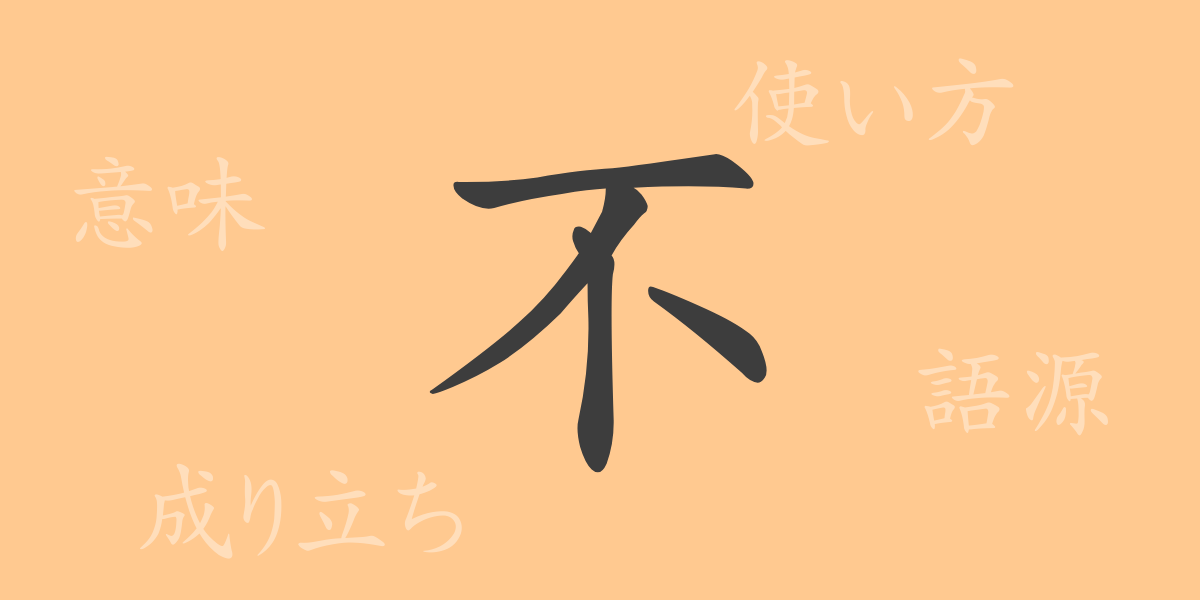The Japanese language features a multitude of kanji, each with its own unique history and meaning. One frequently used character in daily life is “不” (fu), which signifies negation and appears in many compounds and idiomatic expressions. This article delves into the origins, meanings, usages, and various expressions involving “不” (fu), providing a comprehensive overview.
Origins (語源) of 不 (fu)
The origins of the kanji “不” (fu) are ancient, with its roots traceable to Chinese oracle bone script. Initially, it shared the same meaning of negation as “否” (hi), but over time, “不” (fu) and “否” (hi) diverged, each acquiring distinct nuances. “不” (fu) came to be used particularly to express a short and strong negation.
Meaning and Usage of 不 (fu)
The kanji “不” (fu) fundamentally signifies negation. In Japanese, it is used as a prefix to other words to convey the opposite or a negative meaning. For example, “可能” (kanou) means “possible,” while “不可能” (fukanou) means “impossible.” In this way, “不” (fu) is combined with numerous words.
Reading, Stroke Count, and Radical of 不 (fu)
The kanji “不” (fu) is one of the basic characters in Japanese, and understanding its readings, stroke count, and radical is essential for kanji learning.
- Reading: On’yomi (音読み) is “フ” (fu); there is no Kun’yomi (訓読み)
- Stroke count: 4 strokes
- Radical: 一 (ichi)
Compounds, Idiomatic Expressions, and Proverbs Using 不 (fu) and Their Meanings
There are numerous compounds, idiomatic expressions, and proverbs that include “不” (fu), each showcasing the richness of the Japanese language. Here are a few examples:
- 不明 (fumei): Not clear, unknown
- 不安 (fuan): Uneasy, anxious
- 不意打ち (fuiuchi): Doing something unexpected, a surprise attack
- 不公平 (fukouhei): Unfair, unjust
- 不老不死 (furoufushi): The legendary concept of not aging and not dying
These compounds and idiomatic expressions are commonly used in daily conversations, literature, and business settings.
Summary of 不 (fu)
The kanji “不” (fu) plays a crucial role in Japanese, representing negation. Its simple yet powerful meaning is deeply embedded in Japanese life through various compounds and expressions. By examining this single kanji, one can appreciate the depth and richness of the Japanese language. Understanding the meanings embedded in each kanji also leads to a deeper understanding of the culture and philosophy behind the words.

























